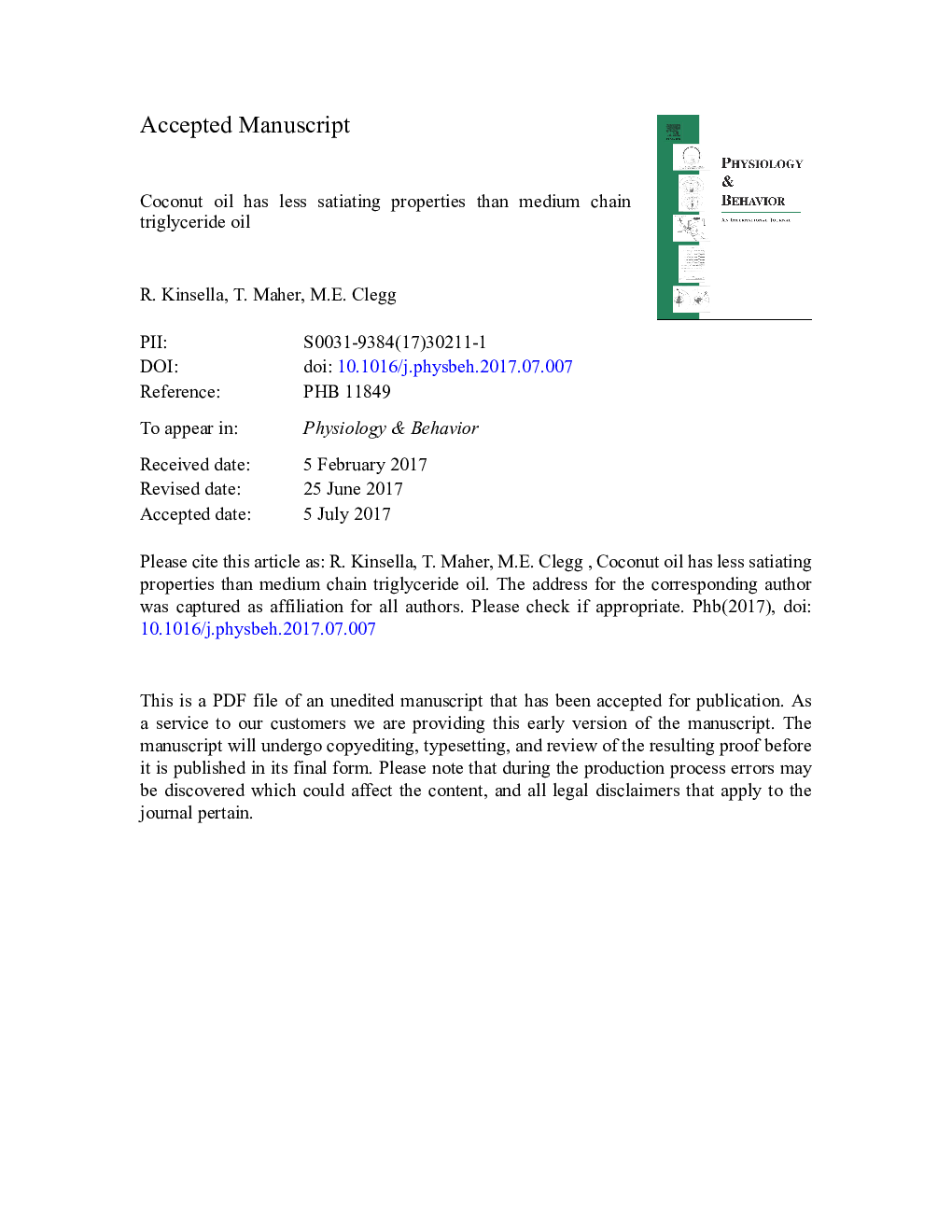| Article ID | Journal | Published Year | Pages | File Type |
|---|---|---|---|---|
| 5593671 | Physiology & Behavior | 2017 | 24 Pages |
Abstract
It is well established that the consumption of medium-chain triglycerides (MCT) can increase satiety and reduce food intake. Many media articles promote the use of coconut oil for weight loss advocating similar health benefits to that of MCT. The aim of this study was to examine the effect of MCT oil compared to coconut oil and control oil on food intake and satiety. Following an overnight fast, participants consumed a test breakfast smoothie containing 205Â kcal of either (i) MCT oil (ii) coconut oil or (iii) vegetable oil (control) on three separate test days. Participants recorded appetite ratings on visual analogue scales and were presented with an ad libitum lunch meal of preselected sandwiches 180Â min after consumption of the breakfast. The results showed a significant difference in energy and macronutrient intakes at the ad libitum meal between the three oils with the MCT oil reducing food intake compared to the coconut and control oil. Differences in food intake throughout the day were found for energy and fat, with the control having increased food intake compared to the MCT and coconut. The MCT also increased fullness over the three hours after breakfast compared to the control and coconut oils. The coconut oil was also reported as being less palatable than the MCT oil. The results of this study confirm the differences that exist between MCT and coconut oil such that coconut oil cannot be promoted as having similar effects to MCT oil on food intake and satiety.
Related Topics
Life Sciences
Biochemistry, Genetics and Molecular Biology
Physiology
Authors
R. Kinsella, T. Maher, M.E. Clegg,
